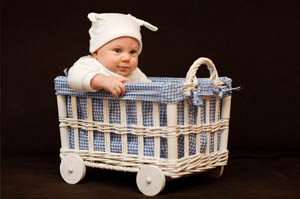
Ben, 23, was permanently fostered from a young age, and believes that the experience helped him to become the young man he is today. He explains to Sophie Offord how…
I was born in Ethiopia, and came to England seeking asylum when I was nine, with my older brother and sister. Later that year we joined our permanent foster family, in a home that I stayed in for almost ten years.
The first thing we experienced was a huge cultural shock. Not only was the country different but our carers were of Jamaican origin. Though I thoroughly love the cuisine now, we weren’t at all sure of the Caribbean food they prepared! There was also a language barrier. We didn’t speak English, and had to get by with basic signing and pointing. It was very difficult for our carers to understand what we needed, and often those misunderstandings would only get resolved once we met up with social services and they provided interpreters.
Our carers had provided foster care prior to us arriving, both short and long term, but there was only one other foster child when we first arrived. Luckily, it was a boy from Eritrea, who spoke the same language as us. Although he didn’t stay long, that helped us with our transition. Credit must also be given to our foster carers. They were very patient and took time to interact with us. Our foster mum attended various events set up for foster carers to exchange cultural background information. She also had a few goes at cooking traditional Ethiopian food! As a result, we moved forward quite quickly and soon picked up English.
I began to feel quite settled and happy in my foster family. The key thing they provided was stability. They included us in normal routines, such as household chores, even when we didn’t want to be! That sort of thing made us feel part of a ‘family’. Unusually, we didn’t then have any contact with our birth family, who were still in Ethiopia but unable to locate us because of the political situation there.
So it was down to our foster parents to strike a balance of emotional and practical support, which they successfully did. They gave me advice about my options when I reached adulthood, as well as affection when I was feeling down.
One of the things, for example, that I found difficult, was telling other people that I was permanently fostered. I was conscious of the fact that my school friends lived with their birth families. I also knew fostering often had a negative image, so only a few very close friends knew about it.
When I reached adulthood, my choices seemed clear. My brother had moved out of our foster family’s home when he was 16, and my sister followed soon after.
Although my foster mum said that I was more than welcome to stay at home while I did my degree at university, it seemed natural to move out and get a flat when I reached 18.
Shortly before I graduated, one of my social workers dropped me a note, saying they were looking forward to seeing the graduation pictures! Being fostered enabled me to build a good set of relationships with a variety of people, both within social services and my foster family. My social workers were very supportive during my time in foster care, and I really got on with them. They were a real presence in my life, and even now we keep in contact. They’re interested in what’s going on in my life, and they see it as a successful story.
My permanent foster parents are absolutely part of my ‘family’. When I moved out and went to university, I still kept the house key and could pop in and out. Their house felt more like a home than anywhere else I’ve been so far in England. They have always made me feel welcome in their lives, even now they’ve moved back to Jamaica. We haven’t lost our link, and I know we’ll always keep our relationship going. I’m looking forward to visiting them when I get the chance! I also keep in contact with some of the children who were also looked after by our foster parents.
I found being permanently fostered a very positive experience, and now feel much more comfortable talking about it. Since graduating, I have started work and am doing really well. Before that I volunteered on a fostering panel, as the ‘voice’ of a young adult who had been in care. When I think of all that I’ve achieved so far, in terms of my academic success and my career, I feel that I owe most of that to my permanent foster parents. After all, they were the ones who were able to keep me out of trouble!
As told to S. Offord
Originally published in the Be My Parent newspaper.
This article is published with the kind permission of the people involved. You may download it for your own reference but if you wish to use it for any other purpose, please contact Be My Parent for authorisation.


